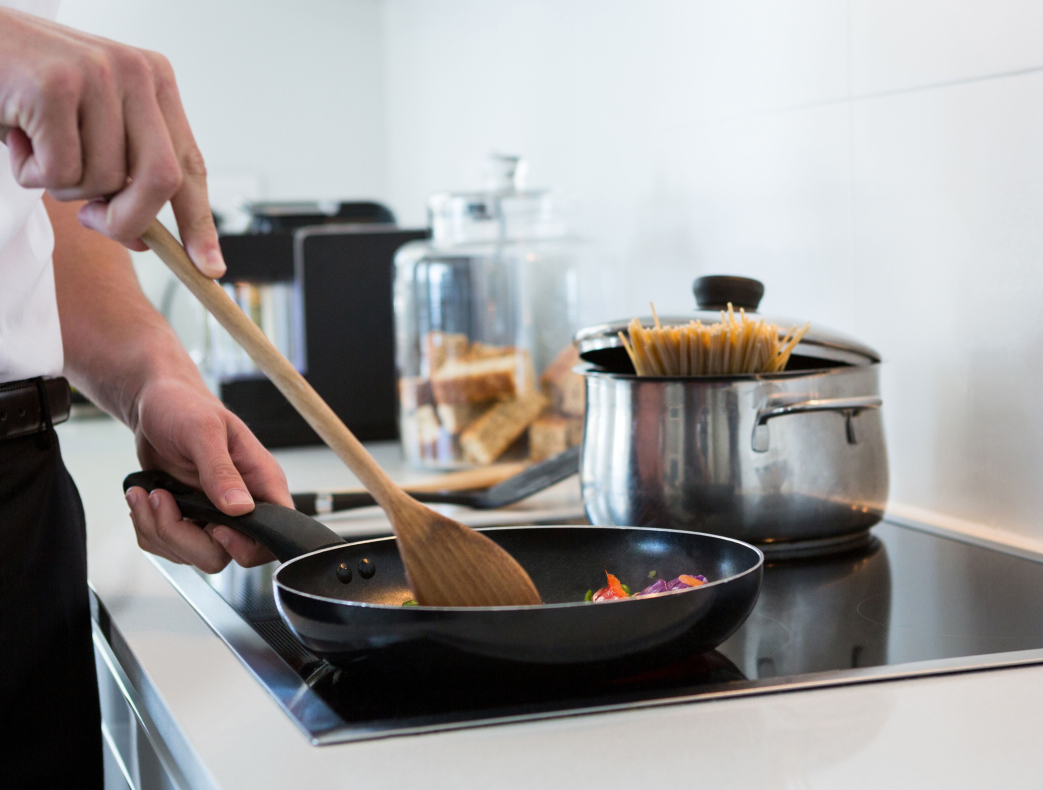
Posted On: Jan 21, 2022
Categories: Learn
Tags: science , facts , health , cooking oils , vegetable oils , cooking methods
In healthy eating, cooking oils are always part of the conversation. Some people avoid some types but embrace others. The truth is, not everything is black and white, and that’s particularly true for cooking oils. Are all cooking oils healthy? Which one is the healthiest?
Which ones are suitable for every cooking method? Are there healthier alternatives? Read on and learn all you need to know about the most popular cooking oils.
Based on the information by the United States Department of Agriculture, we can see the difference in nutrition between the most common cooking oils. Unlike other foods, oils don’t contain carbohydrates or proteins but fat, better said, fatty acids. There are three main types of fatty acids in oils:
Saturated fats. Unhealthy if abused, found in meat and dairy, to mention a few. They increase LDL cholesterol and the risk for coronary diseases. Replacing such fats with olive oil- helps prevent heart diseases.
Unsaturated fats. These are healthy fats that are divided into monounsaturated and polyunsaturated fatty acids. Found in nuts, seeds, avocados and olives. They improve blood cholesterol levels. They decrease your risk of heart attack and stroke.
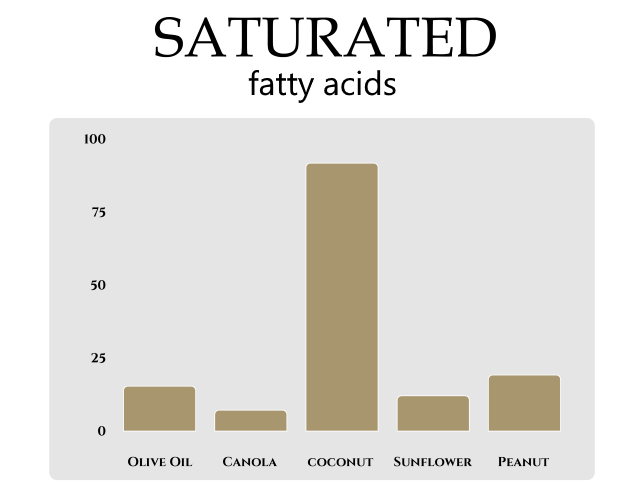
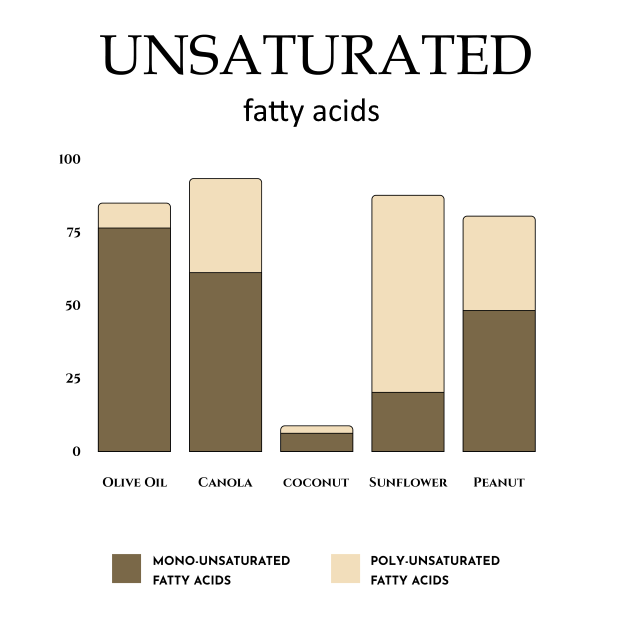
As for calories, all popular cooking oils add the same number of calories and the same amount of fat to your diet. One tablespoon of any oil equals 120 calories and 14 grams of total fat. It is in the types of fat where you’ll find significant differences between oils.
The American Heart Association (AHA) reports that “unsaturated fats, which include monounsaturated and polyunsaturated fats, can reduce the risk of heart disease when people choose to eat them instead of saturated fats.”
The nutritional value, health benefits and risks in cooking with olive oil also depend on the production process. To get oil from grains like corn or rapeseed (canola), the grains must be processed, often at high pressure and temperature, getting a refined oil.
The more refined an oil, the higher its smoke point and shelf-life, but the process eliminates the oil’s organoleptic properties and possible nutrition and health benefits. Unrefined oils, on the other hand, with extra virgin olive oil as the perfect example, are processed with a hand-off approach, as the olives are often only cold-extractedpressed to offerextract a nutrient-rich, flavorful oil. It comes without saying, even the super-healthy olive oil can lose its beneficial properties if too refined.
Refined oils include: canola, cottonseed, sunflower, soybean, corn and safflower.
Less Refined oils include: extra virgin olive oil, clarified butter and organic, virgin coconut oil.
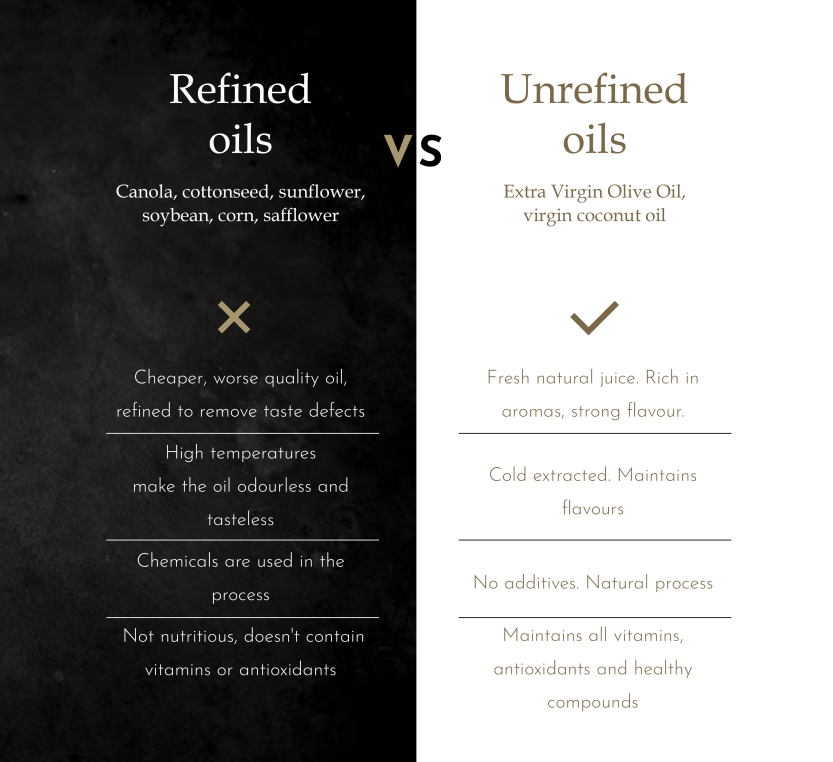
Every type of oil has a unique smoke point, the temperature at which the oil starts to burn and break down. When heated above this temperature oils release some carcinogenic compounds when inhaled. You never want to actually reach the smoking point because at this point the fat is ruined and will add a bad taste to whatever you are cooking. It is important to choose cooking fats that are stable when heated. The smoke point depends on the oils composition.
Saturated fatty acids are very resistant to oil.
Monounsaturated fatty acids are resistant as well, but not as much as saturated fats.
Polyunsaturated fatty acids are sensitive to heat and break down easily.
These are the most common cooking oils and their smoke points.
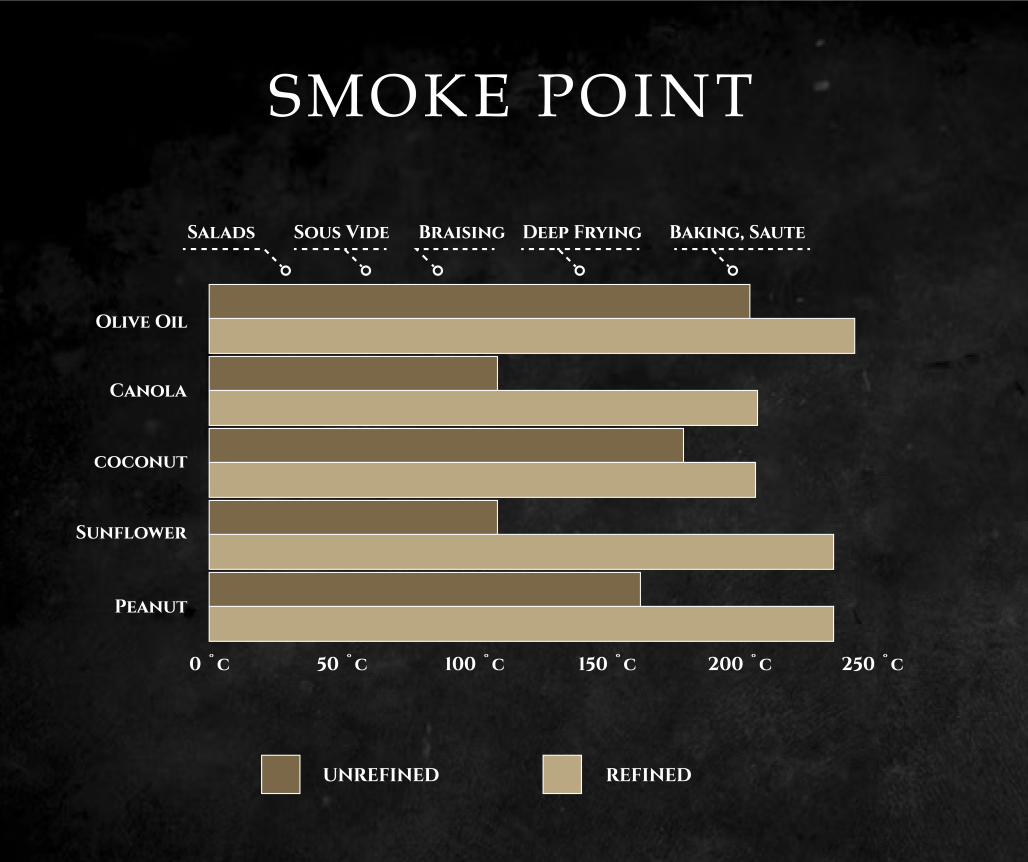
It comes without saying, although many people believe olive oil is not ideal for cooking at relatively high temperatures, the truth is quite the opposite. Olive oil is suitable for searing, sauteing and stir-frying food. You can heat olive oil and cook with it with outstanding results! Olive oil smoke point varies depending on the processing method used to make it — there’s one oil category for every type of cooking method.
Refined corn oil, refined peanut oil, refined soybean oil and refined canola oil are widely used for frying, thanks to their high smoke points. You can deep-fry with olive oil. It is no doubt safe and refined virgin olive oil has a higher smoke point as well. However this method of cooking does lead to degradation of the nutrients of the food and the oil itself. In the process, the oil loses some of its attractive organoleptic properties, so although possible, it’s not advisable and is costly too. Apparently, the healthiest oil in the world can’t do it all, but you know what? Fried food is not healthy, anyway!
Sauteing garlic, onions, vegetables or meat over a medium flame is the starting point for many recipes. You can use any oil for these preparations, but most grain and vegetable oils add little flavor and aroma to the food. On the other hand, Olive oil is more than cooking oil; it adds its personality to your meals for a unique Mediterranean feel.
Oil-based dressing and vinaigrettes are universal. Still, there are very few oil alternatives to fit the bill. Consuming raw grain and vegetable oils is not advisable. This category is reserved for the finest extra virgin olive oils, which elevate salads to delicious heights.
Other oils you can drizzle over salads include roasted sesame seed oil, pumpkin seed oil, flaxseed oil and other virgin, cold-pressed seed oils.
For baked goods, butter is the most popular type of fat. Still, Mediterranean baked goods have relied on olive oil for centuries with magnificent results. With a smoke point of around 420°F / 216°C, virgin olive oil is well above the average baking temperature. Baking with OO gives bread and pastries a fragrant scent that’s never overpowering.
Did you know? Olive oil can be made with an immense variety of olives, and they all have different flavor profiles. There’s no one olive oil, but many, and each can be paired with different flavors. Just like wine, the world of olive oil has an immense depth.
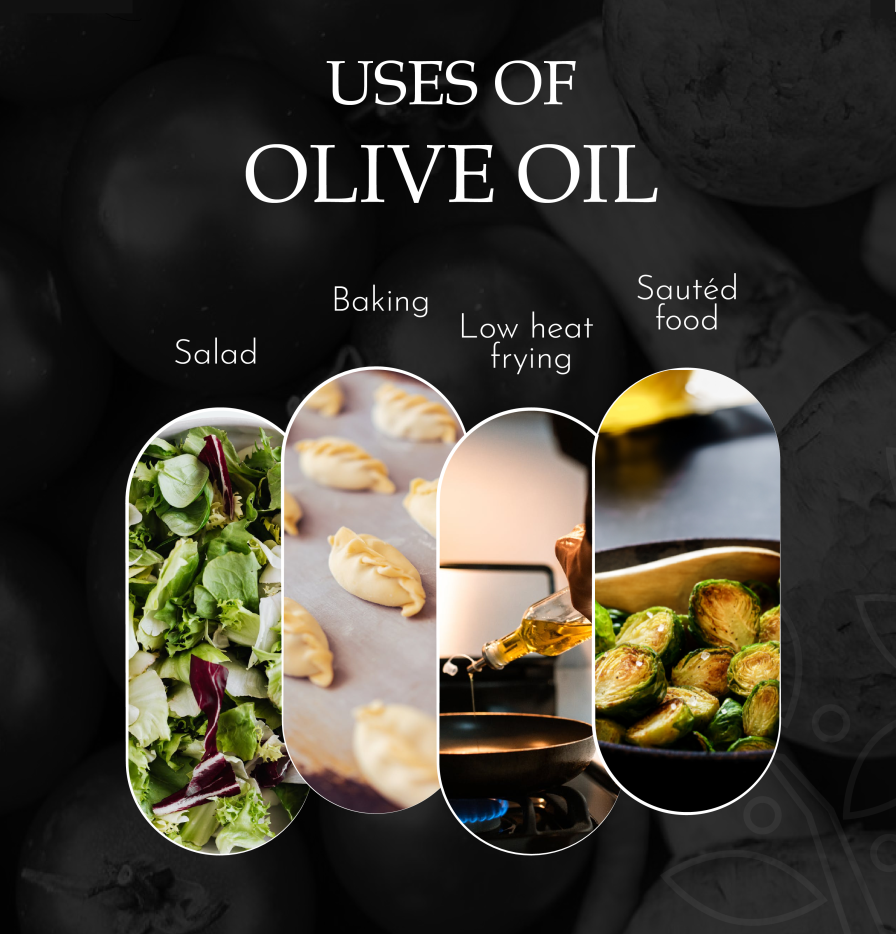
What’s the best oil for cooking? Here’s our verdict. There’s no doubt olive oil is the healthiest and most versatile cooking oil globally, and extra virgin olive oil is a unique delicacy that will elevate your cooking skills to new, exciting heights.
Health-wise, olive oil can help you lower ‘bad’ cholesterol levels and prevent heart disease, diabetes and other life-threatening conditions. It can also slow down premature aging signs thanks to its high amounts of antioxidants.
Having said that, clarified butter, cold-pressed nut oils and even refined vegetable oils (only suitable for frying) have a place in our kitchen. The secret behind cooking healthily is knowing your oils and choosing the right one for every task.
